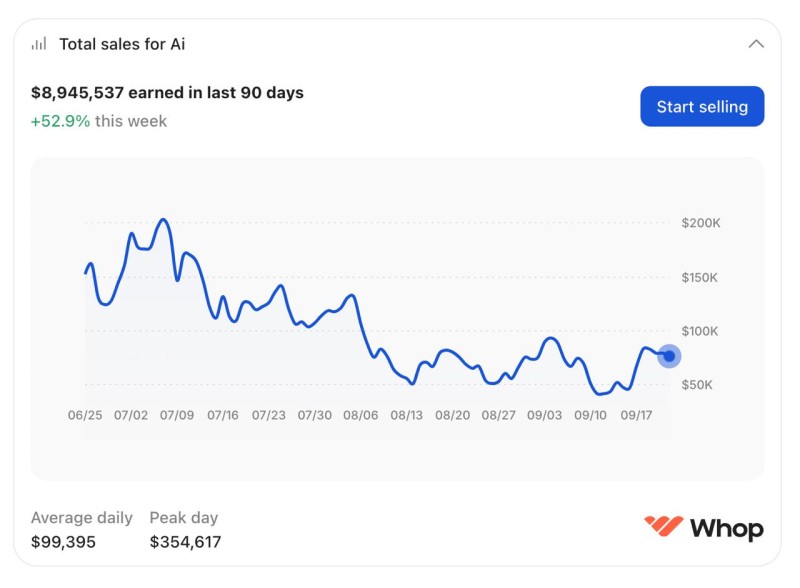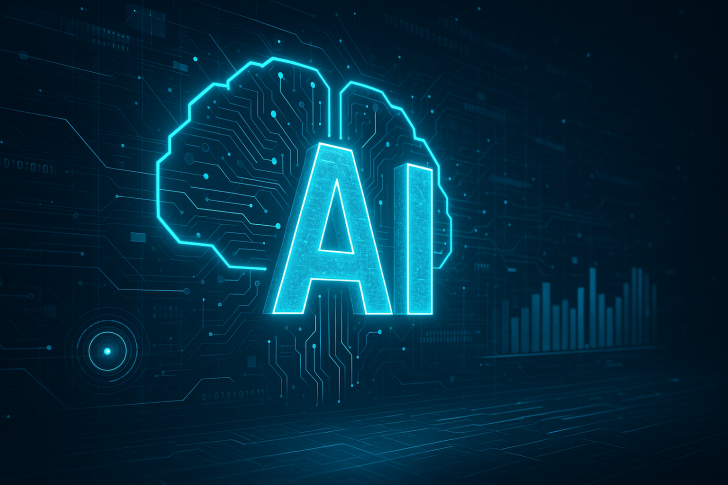The AI gold rush just hit overdrive. The timing? Perfect. OpenAI, Oracle, and SoftBank just announced Stargate - a mind-blowing $500 billion project to build five massive AI data centers. This isn't coincidence; it's the moment when mega-corporate investment meets grassroots entrepreneurship, and the results are explosive.
The Numbers Don't Lie
Insider Paper dropped some eye-opening data showing AI businesses on Whop just crushed it with a 52% sales surge this week.

Whop's latest analytics paint a wild picture. AI-focused businesses pulled in $8.9 million over the past 90 days, but the journey wasn't smooth. We saw a massive peak in early July, then everything went quiet through August - classic market behavior. But mid-September? Game changer. That's when the 52.9% weekly explosion happened.
Here's what really matters:
- Daily average: $99,395 - consistent money flowing in
- Peak day: $354,617 - shows what's possible when things click
- 90-day total: $8.9 million - serious money in a growing market
Stargate: The Infrastructure Play That Changes Everything
This isn't just another tech announcement. OpenAI, Oracle, and SoftBank are betting half a trillion dollars on five world-class AI data centers. Think about what that means - supercharged training for massive AI models, way cheaper costs for advanced deployments, and huge demand for semiconductors and cloud capacity. When the big players go this hard, everyone else feels it.
Here's the beautiful part - while tech giants build trillion-dollar infrastructure, thousands of smaller businesses are already cashing in through SaaS tools, chatbots, and automation services. It's top-down investment meeting bottom-up innovation, and the timing couldn't be better. As one analyst put it perfectly: "AI isn't just about giant data centers - it's millions of small-scale daily sales that define the market's pulse."
The writing's on the wall. AI adoption is hitting warp speed across every industry you can think of. Startups in the AI space are seeing revenue opportunities they never imagined. But here's the catch - as infrastructure costs drop, competition is going to get brutal. The window for easy wins is closing, but the potential for massive wins is just opening up.
 Usman Salis
Usman Salis

 Usman Salis
Usman Salis


